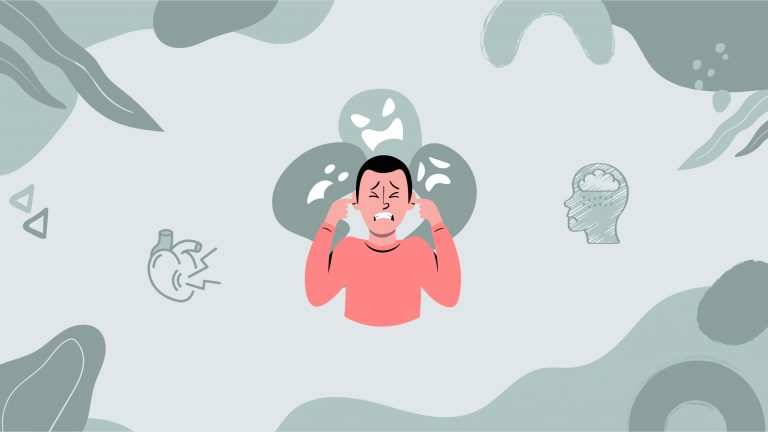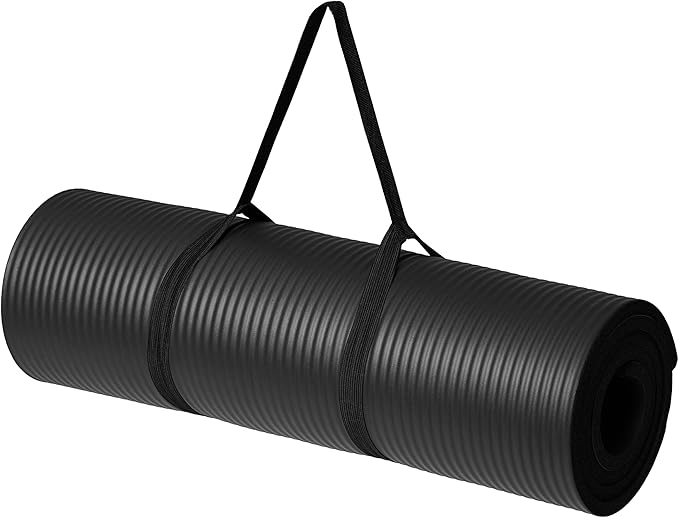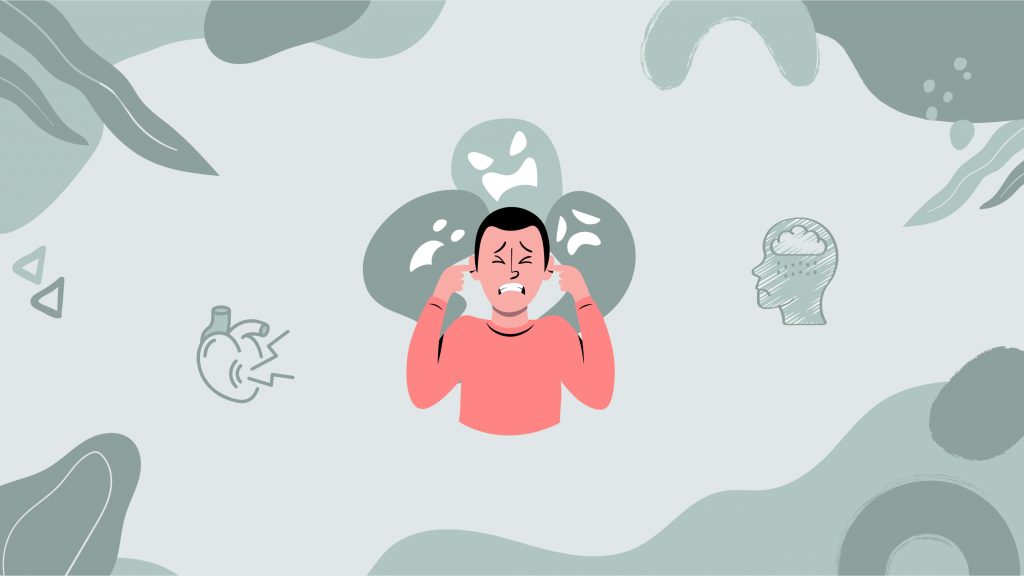“Sleepless nights, twisting and turning, overloaded mind; heartbeats racing, what reason can I find?”
Are you always stuck in situations and cannot think straight or concentrate well? And you have been suffering from this condition for a long time and have no idea how to deal with it?
Then, you are suffering from prolonged stress, and it is time that you understand the effects of stress on your body and take the necessary actions to manage it with the insights provided here.
Introduction
Have you found yourself in this situation where you are sitting in your office on a Thursday evening and working on a project that is due in the next two days, and suddenly realizing that there is not enough time to complete the project?
Now, your heart starts racing, and you have sweaty palms and foreheads. Your brain stops working, and you suddenly lose focus on the work. These are the effects of stress that you have just encountered, as stress is described as a complex physiological and psychological response to external pressure.
When you are stressed, your body starts releasing cortisol and adrenaline hormones. These hormones quickly prepare your body to face any possible threat with a “fight or flight” response, which is crucial for survival.
Ignoring these stress hormones for a long time and letting them take the form of a chronic disease can become problematic for your health.
How Stress Affects Your Health?
A person who is stressed will experience mental and physical effects. Here, you will understand the impact of stress on your body, mood, and behavior in detail.
Have you noticed any long-term health changes you suspect might be due to stress?
Let’s find out more!
#1: Effects of Stress on Your Body
Stress affects your body in various ways, and it becomes important to recognize and manage it promptly.
- Central Nervous System:
If you are struggling to recall simple tasks or cannot concentrate properly and have been experiencing this kind of stress for a very long time, it can turn into chronic stress, which can change the structure of your brain, affect focus, and impair memory.
You must address the issues and opt for mindful techniques to overcome them.
- Endocrine System:
Stress that has been affecting your body and mind for a long time due to work pressure, environment, or any other reason will lead to hormonal imbalance. Your body releases stress hormones and interrupts your endocrine balance, which affects your mood and energy levels.
You need to opt for stress management techniques to reduce the stress.
- Respiratory System:
You might feel breathless when you are in a stressful situation and find it difficult to manage your daily activities. Due to stress, you may experience rapid breathing or hyperventilation, worsening conditions like asthma. Deep breathing techniques and mindfulness will help you reduce your stress.
- Cardiovascular System:
You are constantly stressed due to multiple causes, and your heart is strained for a long time, which adds to increasing severe cardiovascular issues. It also raises blood pressure and increases the risk of heart attack and stroke. You can participate in physical or outdoor activities to reduce your stress level.
- Digestive System:
Are you struggling with stress daily and having frequent stomach aches and discomfort, making you unable to enjoy your meals? This is because of the prolonged stress you are experiencing. Stress impacts your digestive system and increases the risk of IBS, ulcers, and indigestion.
Incorporating a balanced diet and yoga is helpful to reduce these issues caused by stress.
- Muscular System:
Do you always feel muscle aches and tension headaches after a long, stressful day? This is caused by prolonged stress turned into chronic pain and headaches. Regular exercise and physical activities help reduce stress and muscle tension.
- Reproductive System:
There are several people who are suffering from chronic stress, which affects their reproductive health, such as diminishing libido and irregular menstrual cycles. The best way to avoid these issues is to practice stress management techniques daily to lead a peaceful and healthy life.
- Immune System:
Are you one of those people who catch colds or other diseases frequently due to a weak immune system? If so, chronic stress might be the reason behind it, as it suppresses your immune system and increases your vulnerability to infections. You can opt for mindful techniques or yoga to keep your body strong and healthy from stress.
Let’s understand how stress affects your Body:
- How often do you experience muscle tension or headaches due to stress?
- Do you notice digestive issues (e.g., stomachaches) during stressful times?
- Do you experience rapid breathing when stressed?
#2: Effects of Stress on Your Mood
Stress, which has continued for a long time, may affect your mood. Here are some of the common effects of stress on your mood:
- Anxiety and Depression:
Stress is a major cause of frequent changes in your mood and makes you prone to anxiety and depression. You may feel overwhelmed by smaller things in your daily life, making it hard to focus on your task and leading to continuous worry and sadness.According to some research, 1 out of 5 people suffer from a similar condition. You can interact with your friends and family to lift your mood and feel happy.
- Irritability and Anger:
Have you been in a situation where you snapped at your loved one over a minor or for no reason? There is a reason behind this situation that you are facing, called chronic stress. It heightens your irritability and anger, affecting your relationships and then again leading to a stressful life.You can practice mindfulness and meditation to keep your mind peaceful and lead a healthy and calm life.
- Restlessness:
There are several nights when you are tossing and turning, unable to fall asleep, and many things are crossing your mind. These are the effects of stress on your mind, making you restless and agitated.Practicing relaxation and meditation plays an important role in reducing stress and bringing peace to your mind.
Pause and Consider: How does your mood change when you are stressed?
- How often do you feel anxious due to stress?
- Do you become irritable or angry when stressed?
- How often do you feel restless due to stress?
#3: Effects of Stress on Your Behavior
Stress changes your behavior, and you no longer remain yourself. Here are the effects of stress on behavior:
- Changes in Appetite:
Are you someone who always turns to comfort food when you are stressed about everything in your day, work, and the world around you? Then you are stress eating, which not only alters your appetite but also causes you to overeat or undereat. Stress can alter your appetite, causing overeating or undereating. Picture reaching for comfort food after a stressful day or losing your appetite entirely due to overwhelming stress.
- Substance Abuse:
Do you feel like having a glass of wine after a long and tiring day, thinking it will ease your restlessness? Some people turn to unhealthy substances such as alcohol and drugs when they feel stressed or anxious, gradually increasing the intake and making it a habit. There are several other healthy ways to cope with stress, such as eating healthy, getting social, or keeping a stress journal.
- Social Withdrawal:
If you have been keeping your distance from your friends or family, social gatherings, and looking for isolation, it results from prolonged stress, leading to social withdrawal. You can start communicating with your friends and family again, sharing your feelings and what is burdening you, and you can bring yourself closer to other people and help you cope with the stress.
- Decreased Productivity:
There might be scenarios when you struggle to complete your work tasks and cannot focus and perform well due to stress caused by work delays. A high stress level impacts your focus and productivity, compromising your concentration and efficiency. To increase productivity and focus, you can opt for deep breathing exercises and meditation to keep your life on track.
Take a moment to reflect: How does stress influence your behavior?
- Do you notice changes in your eating habits when stressed?
- Do you withdraw from social interactions when stressed?
- Do you turn to alcohol or drugs to cope with stress?
Simple Techniques to Manage Your Stress
When you are aware of how stress affects the body and mind, you can better manage and maintain your overall well-being with the techniques mentioned below:
- Regular Physical Activity:
Imagine you are having a peaceful evening walk in nature, and a gentle breeze touches your cheeks, giving you a refreshing feeling and lifting your mood. Exercising daily in nature reduces stress hormones and releases endorphins that boost your mood. - Mindfulness Practices:
How wonderful would it feel to start your day with a few minutes of deep breathing and stepping into a peaceful tone? There are several mindfulness techniques like meditation, deep breathing, and yoga that you can practice to calm your mind and body by reducing stress.
- Healthy Eating Habits:
When the right food can boost your energy and fulfill your nutrition requirements, you do not have to worry about gaining weight or other health-related issues. Choosing a balanced diet over fast food supports your overall health and helps your body handle the stress.
- Adequate Sleep:
Imagine waking up refreshed every morning after a good night’s sleep and ready to conquer the world with a peaceful and calm mind. You can do this by getting enough sleep and managing your stress properly.
- Social Connections:
Having a coffee catch-up with your friend and sharing some laughs is always a great way to reduce stress. It not only provides you with emotional support but also lifts your mood and makes you happy.
- Professional Support:
If you are stuck in your life and nothing is helping you out with your stress issues, you can always turn to a mental health professional. He can guide you with valuable coping practices and therapy tools to handle the pressure from stress.
👉 Quick Tip:
Pick one stress management technique to focus on this week. Track your progress and note any changes in your stress levels.
Conclusion
We all have been stressed at some point in our lives, and it has had a serious impact on the body and mind. It becomes essential to understand the effects of stress on your overall health and how you can manage it with effective and practical strategies.
Recognizing the impact of stress helps you select the most effective management strategies to keep you refreshed and boost your energy levels. You can also get engaged in regular physical activities and incorporate mindfulness practices like meditation and yoga into your life. It helps you reduce stress, calms your mind, and improves your overall health to lead a balanced lifestyle.
“Quiet nights and peaceful mind; positive thoughts, making your life worthwhile.”
Sources
- American Psychological Association, Washington, DC: How Stress Affects Your Life
- Yale School of Medicine: The Effects of High Stress on the Brain and Body in Adolescents
- Black Dog Institute, Sydney: Stress and its impact on you
- U.S. Department of Veterans Affairs, NW Washington DC: The Stress Response and How it Can Affect You
- CORE The Open University: Stress—Its Effects on Health and Behavior





















